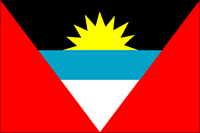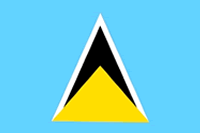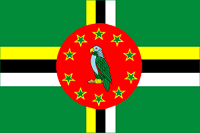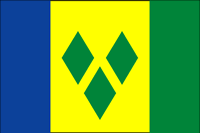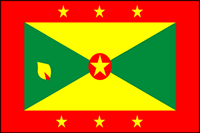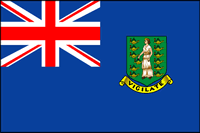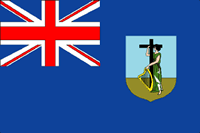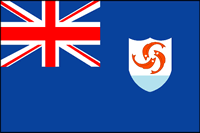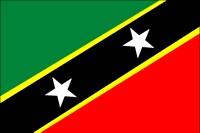Caribbean Regional Oceanscape Project (CROP)
Caribbean Regional Ocean Scape Project (CROP) is a funded project by the Global Environment Facility through the World Bank which aims to move the Caribbean towards a blue economy. Although the term “blue economy” has been used in different ways, it is understood here as comprising the range of economic sectors and related policies that together determine whether the use of oceanic resources is sustainable. Interestingly, the concept of the Blue Economy focuses on the use of the ocean’s resources for economic growth, improved livelihoods and jobs, as well as maintenance of ocean ecosystem health to ensure continued benefits.
Pursuant to efforts under the ECROP, the OECS has sought to form partnerships and access funds to begin to implement the ECROP in earnest. On October 14, 2017, a Grant Agreement for the Caribbean Regional Oceanscape Project (CROP) was signed between the International Bank for Reconstruction and Development, acting as an Implementing Agency of the Global Environment Facility, and the OECS and became effective on October 18, 2017. The relating grant is USD 6.3 million and for the benefit of five participating Member States, namely: Dominica, Grenada, Saint Kitts and Nevis, Saint Lucia, and Saint Vincent and the Grenadines.
During the period September 2019 to January 2020, the CROP underwent a midterm review. The midterm review report highlights a number of key messages, including 'The Caribbean Regional Oceanscape Project (CROP), represents a major step in the important, innovative, long-term process aimed at developing a sustainable blue economy in the OECS region.
Products of the Caribbean Regional Oceanscape Project (CROP)
As one of the key Blue Economy frontrunners in the region, the OECS has taken the first step to enable the transition to a Blue Economy. The CROP includes a number of products which include:
1 - Social Safeguards

A Strategic Environmental and Social Assessment (SESA) was conducted for the CROP to provide an overarching, high-level visionary decision-making tool that will inform the project leadership of all the environmental and social opportunities and constraints at the regional level. The data and knowledge gained through the process of implementing the CROP will complement the SESA and as such, the SESA is considered a living document that will guide across all the activities under the CROP. Many of the conflicts and compatibilities visualized during the preparation of the planned coastal and marine spatial plans (MSPs) for example, will need to be analysed against the evolving conclusions of the SESA to ensure that these outputs mitigate the overall long-term risks.
The SESA will also facilitate the incorporation of priority environmental and social considerations into CROP outputs and outcomes particularly as related to indigenous Kalinago community in Dominica and to concerns associated with natural habitats, especially mangroves, coral reefs and seagrass beds and their associated biodiversity at a regional level. It is, therefore, a requirement that an Indigenous People’s Planning Framework (IPPF) is embedded into the SESA.
The principles guiding the work of the CROP include:
- Equitable – should be demonstrated in the transparency and fairness practised when making decisions on user access to marine space;
- Adaptive– the MSP process should be adaptive so that it can meet the changing needs of marine space use. As data and information are available, plans should be revised to capture this new information. Thus, it is expected that the length of the planning cycles will get shorter over time as the decisions made are tested and there is less new information that needs to be considered and incorporated;
- Holistic– the MSP should cover all the potential uses of ocean space including ecological, economic, cultural, aesthetic, social etc.;
- Transparent– the decisions made under the MSP must be done in such a way that stakeholders understand how the decision came about, how resources are allocated, and how it will affect their livelihoods. This is critical to ensure buy-in from all stakeholders for the process and for adherence to the eventual rules and regulations;
- Knowledge-driven– the MSP should use the best available science as the foundation for decision-making. As new information becomes available about the natural, social and economic processes that affect the marine environment, the plan should be modified to reflect these changes. MSP decision-making should use quality, comprehensive data and information, at the appropriate scales;
- Public and political buy-in and accountability– for success the MSP must have the support of all stakeholders. The buy-in will ensure the stakeholders are advocates for the process and ensure it is done properly. Thus, MSP should be guided by a bottom-up approach. With public buy-in, the political buy-in should follow since politicians tend to follow the will of the people. Buy-in also ensures voluntary compliance resulting in less expenditure on enforcement;
- Sustainability – sustainability can be defined as the need to consider environmental, economic, social, and cultural values in meeting the needs of the present without compromising the ability of future generations to meet their needs. Thus, during MSP, the quality and health of the environment should not be destroyed for economic returns - the environment and economy must go together in MSP decision-making;
- Ecosystem-based management– fundamental to the management of the ocean is consideration of the diversity, health and productivity of marine ecosystems. The marine environment must be treated as a complete indivisible systems and the interrelationship between marine users and ecosystems should be recognized. Doing this will ensure ecosystem processes and resilience are safeguarded when decisions are taken;
- Precautionary principle– this principle states that “in the face of uncertainty about potentially irreversible environmental impacts, marine management efforts must err on the side of caution, adopting a risk-averse and precautionary approach to decision making”;
- Integrated management– for MSP success there is a need to move away from traditional sectoral and species-based management approaches to a more all-encompassing approach that addresses the interrelationships among issues and sectors and between nature and development;
- Duty of care and accountability– stakeholders should act with due care to avoid negative impacts of the decision made on the marine environment and when decisions are made, persons should be held accountable for them;
- Multi-stakeholder participation– full stakeholder participation is critical so that credible, accepted rules are identified that assign responsibilities appropriately. This helps ensure stakeholder buy-in and acceptance of the rules and regulations;
- User pays and other economic instruments– If the marine environment is damaged, the persons responsible for this damage should be responsible for remedial measures; and
- Simplicity- MSP plans should be as simple as possible so that they are easily understood by users resulting in high levels of compliance.
2 - CROP Process Framework

As part of the CROP, a Process Framework has been prepared and this expresses aspects of the World Bank’s Social Safeguard Operational Policy 4. This policy offers detailed guidance on how to anticipate and lessen adverse impacts on persons and livelihoods caused by project-related activities. Why does this matter? While the coastal and marine spatial plans being produced under the CROP will promote the Blue Economy, in implementing these plans post-CROP, there is the potential that some persons and/or livelihoods may be affected.
CROP Involuntary Resettlement Policy Framework (IRPF) is an Involuntary Resettlement Policy Framework (IRPF) was prepared for the CROP. The purpose of the IRPF is to establish resettlement objectives, principles, organizational arrangements, the overall design of the resettlement programme, and funding mechanisms for any resettlement operation that may be required during the implementation of the coastal and marine spatial plans post-CROP. The IRPF defines what constitutes resettlement, identifies resettlement impacts on displaced persons and other adversely affected groups, and outlines a viable pathway for the delivery of compensation or other resettlement assistance.
3 - Indigenous People’s Planning Framework (IPPF)

As a precursor to the development of Marine and Coastal Spatial Plans to improve ocean governance, a Regional Strategic Environmental and Social Assessment (SESA) is required. The SESA will facilitate the incorporation of priority environmental and social considerations into CROP outputs and outcomes particularly as related to indigenous Kalinago community in Dominica, and to concerns associated with natural habitats, especially mangroves, coral reefs and seagrass beds and their associated biodiversity at a regional level. It is, therefore, a requirement that an Indigenous People’s Planning Framework (IPPF) is embedded in the SESA.
4 - Grievance Redress Mechanism (GRM)
 A Grievance Redress Mechanism (GRM) is a complaint mechanism through which people and communities affected by projects and other activities may raise their concerns. A GRM allows for receipt of concerns, facilitates address of the concerns and informs on the status of redress. A (GRM) for the CROP is established. Any person may access the GRM to file a complaint as needed. Moreover, if a person having submitted grievances, is not satisfied with the redress, then an Appeals Proces by emailing
A Grievance Redress Mechanism (GRM) is a complaint mechanism through which people and communities affected by projects and other activities may raise their concerns. A GRM allows for receipt of concerns, facilitates address of the concerns and informs on the status of redress. A (GRM) for the CROP is established. Any person may access the GRM to file a complaint as needed. Moreover, if a person having submitted grievances, is not satisfied with the redress, then an Appeals Proces by emailing
5 - CROP EBOOKS

The CROP E-Book Series can be read as standalone documents or together as a complete series. The Series provides a briefing on five key topics essential for the delivery of integrated ocean governance within the OECS region:
6 - Document: “We Are Large Ocean States”: Blue economy and ocean governance in the Eastern Caribbean.

Riding the wave of success from its inaugural Blue Economy Investors Roundtable at the OECS Sustainable Development Movement – SDM 2020 – the Easteran Caribbean Regional Oceanscape Project (ECROP) has published a landmark document on Blue Economy and Ocean Governance in the Eastern Caribbean.
7 - CROP End of Project Review and Evaluation

As concluded by its mid-term review and as confirmed by this evaluation, the Caribbean Regional Oceanscape Project (CROP) represents a major step in the important, innovative, long-term process aimed at developing a sustainable blue economy in the OECS region. It is a process that began a decade ago, when the OECS Commission and its Member States committed themselves to setting up adequate ocean governance as a requirement for the development of a blue economy in the region, within the framework of the Eastern Caribbean Regional Ocean Policy (ECROP).
8 - CROP Jingle

9 - CROP Videos

10 - CROP Webinars
Resources
Access more resources on Ocean Governance and Blue Economy in the Eastern Caribbean via the OECS Library.
Our Partners
The OECS has been partnering for multiple years with international agencies supporting the strategic priorities defined above to transform agriculture in the Eastern Caribbean while reducing poverty and promoting food and nutrition security.

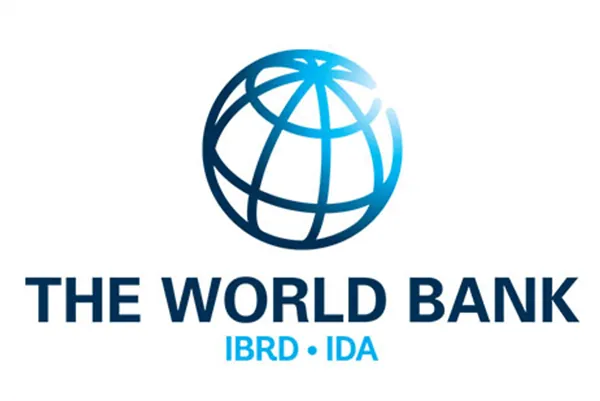
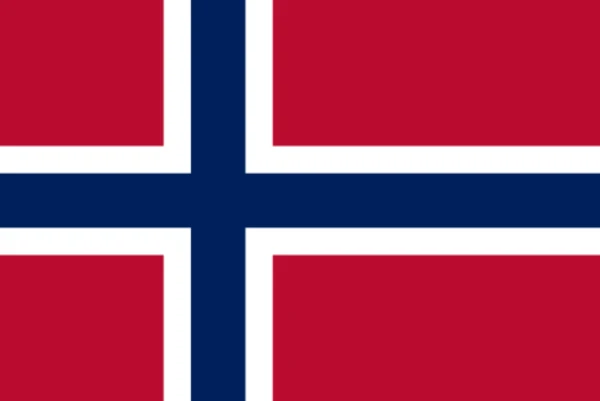
Contact
Susanna DeBeauville-Scott
Project Manager
Tel: +1 (758) 455-6342
Partners
The OECS has been partnering for multiple years with international agencies who support projects developed in the area of Ocean governance and Blue Economy in the Eastern Caribbean.
